| Complete a spelling activity from the spelling grid.
Suffix ‘shun’ : -cian |
|
| magician | dietician |
| musician | politician |
| technician | clinician |
| optician | mathematician |
| electrician | statistician |
Author: Miss Beatson
01 February 2019
This week’s homework is practice makes perfect.
Please see Miss Beatson for a sheet.
Year 5: comparing fractions
Year 6: dividing fractions
25 January 2019
A reminder of the spelling activity grid.
| 1. Spot the Word
Look to see if you can spot smaller words inside the spelling word eg; friend, vegetable. |
2. Speed Write
Choose some words from the spelling list. How many times can you write the same word in one minute? |
3. Rainbow Words
Break a word down into syllables and write each part in a different colour eg; im / poss / i / ble |
| 4. Mnemonic
Write a mnemonic to remember the spelling: the first letter of each word in the sentence spells the word eg; because: big elephants can’t always use small exits. |
5. Backwards Words
Write out the spelling word forwards and then backwards eg; communicate / etacinummoc |
6. Silly Sentences
Write silly sentences with a spelling word in each. Underline the spelling word. |
| 7. Connect the Dots
Write the spelling words using dots, then connect the dots by tracing over them with a coloured pencil. |
8. Spelling Tennis
Play with somebody at home and evidence it in your homework book. One person starts with the first letter of the word; the other person says the next letter. The last person to add a letter, wins! |
9. Musical Words
Make up a little thyme, rap or song to remember words or rules for spellings eg; Mrs D, Mrs I, Mrs F,F,I, Mrs C, Mrs U, Mrs L, T, Y- difficulty. |
25 January 2019
This week’s spelling list
| Complete a spelling activity from the spelling grid.
Suffix ‘shun’ : tion, sion, ssion |
|
| protection | persuasion |
| competition | infusion |
| occupation | confession |
| accommodation | expression |
| explosion | mission |
| occasion | discussion |
Living and Learning
Our Living and Learning theme this week: I know what a drug is.
In Years 5/6, we have been discussing different influences which could make us want to smoke or drink. We sorted images from various forms of media to recognise what a positive influence looks like and what a negative influence looks like.
We realised it isn’t just media that can influence us. After group discussion and an organising activity, we all agreed that friends could possibly be the biggest influence on the decisions we make.
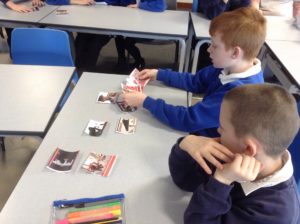
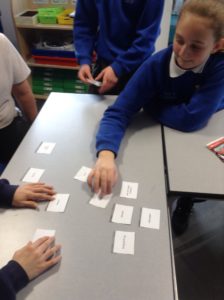
We thought about why somebody would want to avoid smoking or drinking alcohol. Some of the suggestions were religion, health, money, against the law, and not wanting to get into trouble with parents.
We came up with different ways people could respond if they wanted to avoid smoking.
“It’s not good for me, I’m trying to be healthy.”
“I don’t like the taste or smell of smoke.”
“It’s against my personal belief.”
Then, we shared our thoughts by doing a conscience alley.
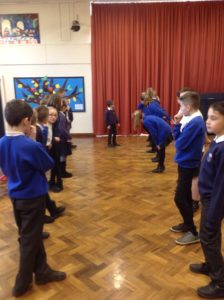
Real Friends
Last week, years 5 and 6 watched a thought-provoking and powerful performance called Real Friends. The drama explored two very serious issues: hate crime and mate crime. It was performed by an organisation called Leeds People First. People First is about putting the individual first rather than the condition, “people with disabilities” rather than disabled people. The class had to think about how they would change a situation through role-play to help stop such crimes.
“My favourite part was at the beginning when the actors were all wearing masks and holding up signs. It caught my attention.”
“I really liked listening to Olivia’s story about the hard times she experienced throughout school because of her autism. It was based on a real-life situation.”
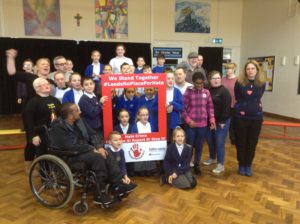
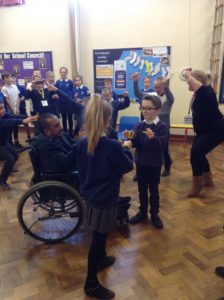
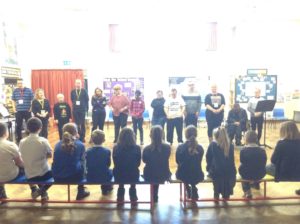
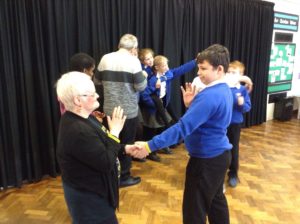
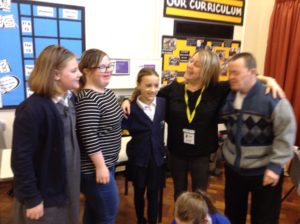
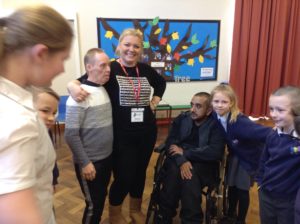
How can we clean water?
In science, our task was to clean some very dirty water by sieving, filtering and evaporating. The water had a range of materials in it: sand, salt, mud, leaves and twigs.
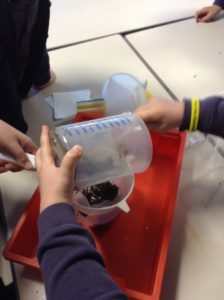
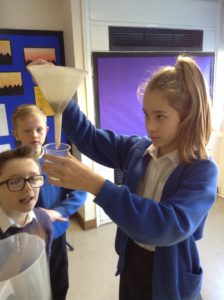
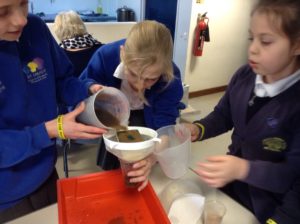
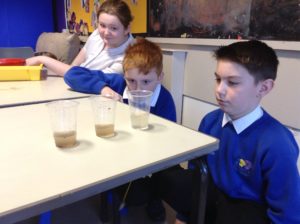
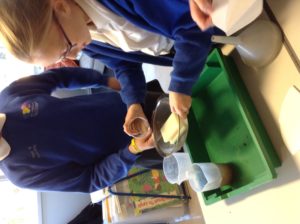
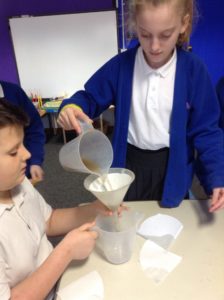
Once we had sieved and filtered the materials from the water we still needed to remove the salt. We use evaporation to separate the salt and the water.
What’s the matter?
This week, we tested which materials are soluble and insoluble. We sorted sand, salt, sugar and many more into these two groups.
After that, we investigated if the temperature of water affects the speed of dissolving. We had to test this several times to make sure our results were reliable. Then we calculated the mean time taken for sugar to dissolve in different temperatures.
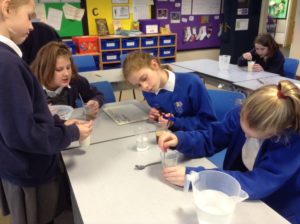
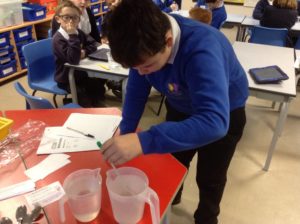
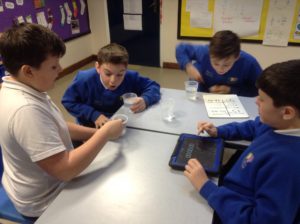
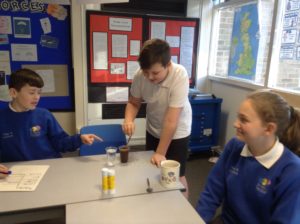
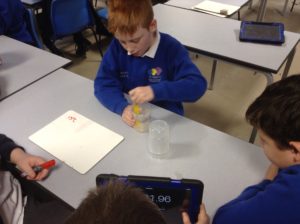
Our results showed us that the higher the temperature of water, the faster the sugar dissolves. Therefore, the temperature of water does affect the speed of dissolving. I wonder why? Can you find out?
11 January 2019
This week’s homework is practice makes perfect.
It is an opportunity to recap on learning we have been doing in class about calculating fractions.
Y5: adding and subtracting fractions.
Choose two fractions with different denominators to add or subtract.
Y6: adding and subtracting mixed numbers.
CGP revision sheet
Here are some links to support your homework.
11 January 2019
You can change nouns and adjectives into verbs by using the suffixes: ify, ate and ise.
The spelling activity this week is to sort nouns and adjectives by adding these suffixes.
Examples include popular, advert, pure, real, computer, active, author and equal. Which suffix can you add to these words?